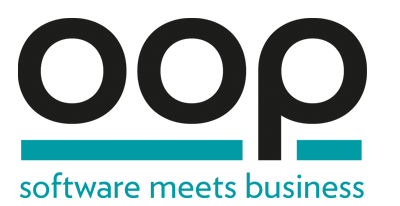Please note:
On this page you will only see the English-language presentations of the conference. You can find all conference sessions, including the German speaking ones, here.
The times given in the conference program of OOP 2024 correspond to Central European Time (CET).
By clicking on "VORTRAG MERKEN" within the lecture descriptions you can arrange your own schedule. You can view your schedule at any time using the icon in the upper right corner.
Track: Trends & Techniques
- Dienstag
30.01. - Mittwoch
31.01. - Donnerstag
01.02.
Test coverage: 100% - Check!
And why do we still have bugs?
OK, tests don't prove the absence of errors.
And at the end of the day, they are just code which could contain bugs as well.
And perhaps they give us a false sense of security.
But how do I know, that my test are good?
One way to find out is using Mutation Testing.
In this talk I want to explain, what Mutation Testing is, how to do it and when it is helpful.
Target Audience: Developers, Achitects, Testers
Prerequisites: Basic knowledge…
How often have you heard that ‘Yes this is important, but we don’t have the capacity right now’ or ‘sure let’s put it in the backlog’?
This is something we should not brush off or take lightly. Accessibility testing is vital especially when your product is a user facing application.
We need to be socially aware as a team and build quality towards our product with making it more accessible.
Target Audience: Everyone as Accessibility is for social awareness
Prerequisites: None
Level: Basic
Extende…
Reducing the gender gap in technology companies is a critical goal for fostering diversity, promoting equality, and unlocking the industry's full potential. Despite significant progress in recent years, women remain underrepresented in technical roles and leadership positions. Diverse teams bring different perspectives, creativity, and innovation, leading to better problem-solving and successful businesses. By working together, we can create a future where women are equally represented and…
Expanding Horizons, the motto of OOP 2024, invites exciting thoughts about the future of software engineering. What will a developer's working day look like in 2034? What environments, tools, and practices will they use to create, test, deploy, and operate software? What will our daily lives look like in a digitalized world in 2034? What types of software systems will be everywhere? What systems will we use at work? What architectures and technologies do these systems rely on? Frank and Kevlin…
Organizations are drawn to migrate their systems into the cloud, but in practice, cloud transformations do not always succeed in achieving the advantages often promised by cloud providers, such as scalability, availability, and cost effectiveness.
We give an overview over Kevin Hoffmann's fifteen factors for cloud-native applications and how they help us achieve success in our cloud migrations.
Target Audience: Architects, Developers, Operations, DevOps
Prerequisites: Basic understanding of web…
Although the term "Cloud Native" in the context of Java has been repeated ad nauseam for years, the JVM as a platform has only recently entered a phase where everything truly aligns with how cloud-native architectures are designed. Let's trace the path Java has already taken in recent years and take a look at what lies ahead in the future. During this presentation, you will learn about projects such as Leyden, CRaC, and GraalVM, and how they can realistically influence the way applications are…
"Σπεύδε βραδέως" in ancient Greek, or "festina lente" in Latin translates as "hurry slowly" an oxymoron saying to indicate the need for balancing deliberation and urgency.
In this talk we comment on the prevailing perceptions relating to speed of software development and how in a DevOps context what sometimes is perceived as fast from an individual's perspective has a deleterious effect on team performance while practices traditionally viewed by developers as cumbersome have in fact a positive…
Most current UI libraries provide great user experience with a vast of components. But when it comes to heavy customization and non-standard scenarios, especially for E-Commerce, they become hard to manage, scale or even slow down performance. How to create a UI library that provides users the most possible freedom in customizing components, while keeping our performance and scalability to the fullest? How much customization freedom is enough? That's what my talk is about.
Target Audience:…
Last year in open source, we saw the compliance threat shift from license violation to contract violation, we saw the rise of the bill of material as a purchasing requirement, and we saw the continued growth of source-available licenses. If you don't know what I'm talking about, you really need to attend, because your business is at risk if you don't understand these changes. In this annual talk, I will review the last year and speculate about what the future may bring.
Target Audience: Product…
This talk is about my journey as a Scrum Master towards creating sustainable DevOps teams. I will share my learnings and inspire the audience to raise awareness on sustainability in their own teams and organizations.
We will have a look at IT (and our own work) through the generational lens, to discover how long-term thinking can reshape the way we look at our daily work and help us find strategies for making IT sustainable.
Target Audience: Architects, Developers, IT Managers, Agile…
The world is constantly changing. As IT professionals, we are aware of the intrinsic changeability of projects, contexts and our business, but the events of the last years have put this into sharper focus. How will external changes shape our teams and our work?
Alex looks at what factors are at work now, and what kinds of effects will they have on how we work, and the roles of testers and software professionals. She will also look at activities on an individual and company level, to best prepare…

